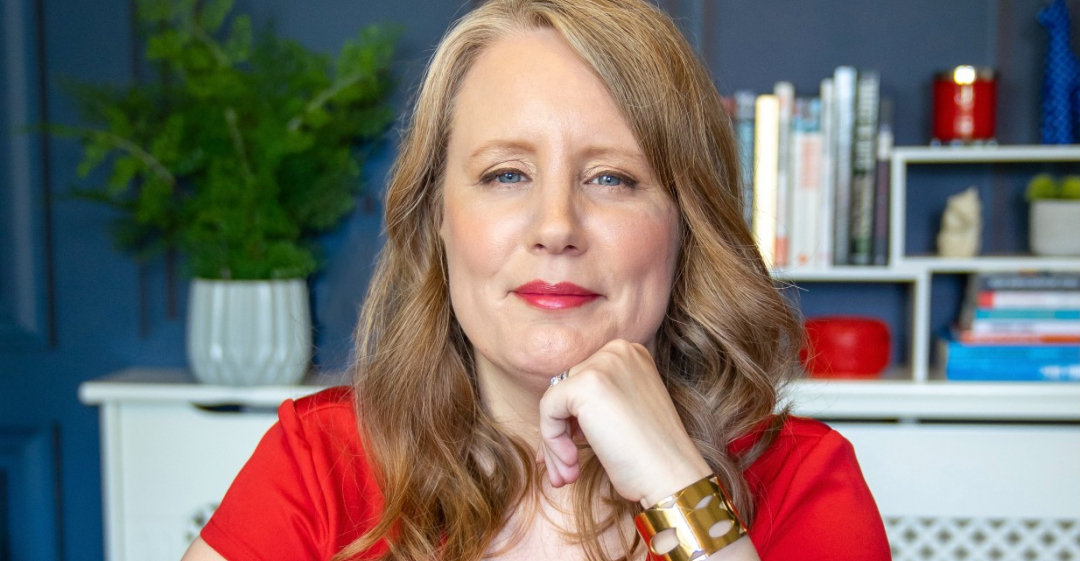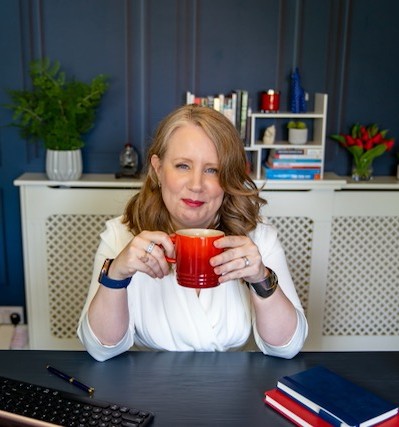“After a while the 'prestige' of running deals worth hundreds of millions wears off.”

What work were you doing previously?
I qualified as a corporate M&A solicitor in London and was a corporate M&A partner for ten years (in three different international law firms).
I worked with large corporates, buying, selling and structuring businesses worth hundreds of millions, if not billions. Many of my clients were household names – from M&S, Virgin Media, etc., to international football superstars.
Most of the work was international so there was a lot of burning the candle at both ends, and a moderate amount of travel. I got to go to places than I never dreamed I would go (Seoul, Moscow, Helsinki, Tokyo, Hong Kong, and Los Angeles, to name a few).
What are you doing now?
I've set up my own legal consulting and education company called The Legal Strategist Limited.
I'm working 1:1 with smaller corporates and SMEs, and I'm also building an online programme to bring top-quality, pragmatic legal advice and education to small businesses that wouldn't usually go to a solicitor.
How did you feel in your work before you decided to make the change?
Frustrated, unsatisfied, ground down.
After a while the 'prestige' of running deals worth hundreds of millions wears off.
I'm not cut out for office politics (my husband tells me I'm too honest!), too many bad behaviours were ignored / tacitly accepted and many of my skills, such as mentoring the younger solicitors, were not valued.
I found it really hard to do business development (a key requirement once you're a partner), because, on reflection, I didn't believe in what I was doing. I found it hard to hide how I felt.
Why did you change?
I didn't want to feel unhappy in my work (and life) for the next 20 years.
It was also leaking into my home life. I was snapping at my children and husband, it wasn't fair on them either.
When was the moment you decided to make the change?
There was no one Eureka moment, but trying to keep my head above the water during the pandemic was (like for many working mothers, I'm sure) a bit of a watershed moment.
I realised I didn't want to spend any more energy trying to change the system from within, and I didn't want to be in a traditional law firm anymore. But it took me a while to arrive at my current business set-up.
How did you choose your new career?
I took what I already do well and enjoy, and packaged it up into a business.
Are you happy with the change?
Yes. The freedom is quite intoxicating actually!
While it’s still early days, the only thing I've permanently outsourced so far is accounting. I'm doing everything else myself or bringing someone in to do something on a one-off basis (e.g. my website).
I'm enjoying learning and doing different things.
What do you miss and what don't you miss?
I miss many of my colleagues and having great people to bounce ideas off.
I don't miss the pointless meetings or office politics.
How did you go about making the shift?
The shift wasn't as difficult as it might have been, as I'd already been working from home for over a year.
So it wasn't as though one day I was in the office wearing a shift dress and then the next in PJs and hoody at home.
How did you develop (or transfer) the skills you needed for your new role?
I could already do the provision of the services side: I've been working for clients on corporate law matters for over 20 years and I've been 'teaching' (for want of a better word) for over a decade.
I spent a lot of time learning and figuring out what was needed and where I needed to plug the gap in my skills / knowledge.
So, for example, with things like branding, marketing, sales, tech, etc – I've either spent some money to accelerate my learning, or paid for someone to do it for me. I went on a branding programme, I've been on copywriting and marketing courses, and someone put my website together for me.
What didn't go well? What wrong turns did you take?
The main thing so far was getting my head turned by 'shiny' things and spending too much money on courses that I didn't really need.
Happily, I'm more restrained and thoughtful about it now.
How did you handle your finances to make your shift possible?
I built up a buffer of savings; plus my outgoings are less because I'm working from home (no commuting costs, we don't employ a nanny any more, etc.)
So I've found I don't need to earn the same amount anymore.
What was the most difficult thing about changing?
There is no-one to bounce ideas off. The buck literally stops with me.
I'm also used to working reactively – I'd go into the office and not know if I would be able to leave at 6 p.m. or still be there at 3 a.m., as things could pop up and go crazy in the blink of an eye.
Now, I have much more control over my day, but I'm finding it hard to be disciplined and keep to some sort of structure.
I also had a wobble just before I updated my LinkedIn profile and posted about the business launch. I found myself worrying, "What if people laugh / think I've dumbed down?". I had to have a stern word with myself.
What help did you get? 
I primarily worked with a couple of coaches.
The first was a business coach, Phil Sanderson (who used to be a senior lawyer in London, so knew where I was coming from). He helped me slow down and stopped me from making rash decisions – I felt that I had made bad decisions in the past and didn't trust my current decision-making skills, so he really helped me reframe and move beyond the past. We also spent time digging into my strengths and values.
The second was a branding coach called Deborah O'Grady. Her work dovetailed so well with Phil's, as to build a business and a personal brand was all about looking at me first: "building your business from the inside out", as she calls it.
She also helped me finally understand why I wasn't happy with traditional law firm life, because it isn't aligned with my own values.
I wanted to do something that feels more meaningful and, from a selfish perspective, I want to see the immediate impact my help can give people.
What resources would you recommend to others?
Some great books to help you explore a career change:
Find your Why - Simon Sinek
Working Identity - Herminia Ibarra
The Practice - Seth Godin
My tech-stack:
Kajabi: run my website, sales and marketing and CRM off this
Acuity: calendar and booking system (hooked up to Stripe and Paypal)
Zapier: connects various apps together (e.g. I've used it to connect Zoom and Acuity and it automatically creates and sends Zoom links when someone books in)
Otter.ai: brilliant transcription tool
Trello: essentially an electronic post-it note system
Legl: outsourced compliance/KYC/AML service (a bit more niche)
Loom: for recording videos
Google: Google docs/calendar/spreadsheets/forms
Toggl: if you need to track how you spend your time
What have you learnt in the process?
I learned a lot about myself as a person, about how I want to work and who I want to work with.
Life's too short to be stuck being miserable.
What would you advise others to do in the same situation?
Do it.
Have some sort of a plan but don't fixate on getting everything perfect and buttoned down before you make the jump, otherwise you never will.
I was getting obsessed with having certain things finished on my website before launching the business – one of my friends had a stern word with me to say that I just needed to focus on the minimum viable product. The other things weren't critical and I could work on them whilst waiting for clients to come in. But the longer I delayed, the longer it would take for those first clients to arrive.
To find out more about Laura's business, visit www.laurabrunnen.com.
What lessons could you take from Laura's story to use in your own career change? Let us know in the comments below.



